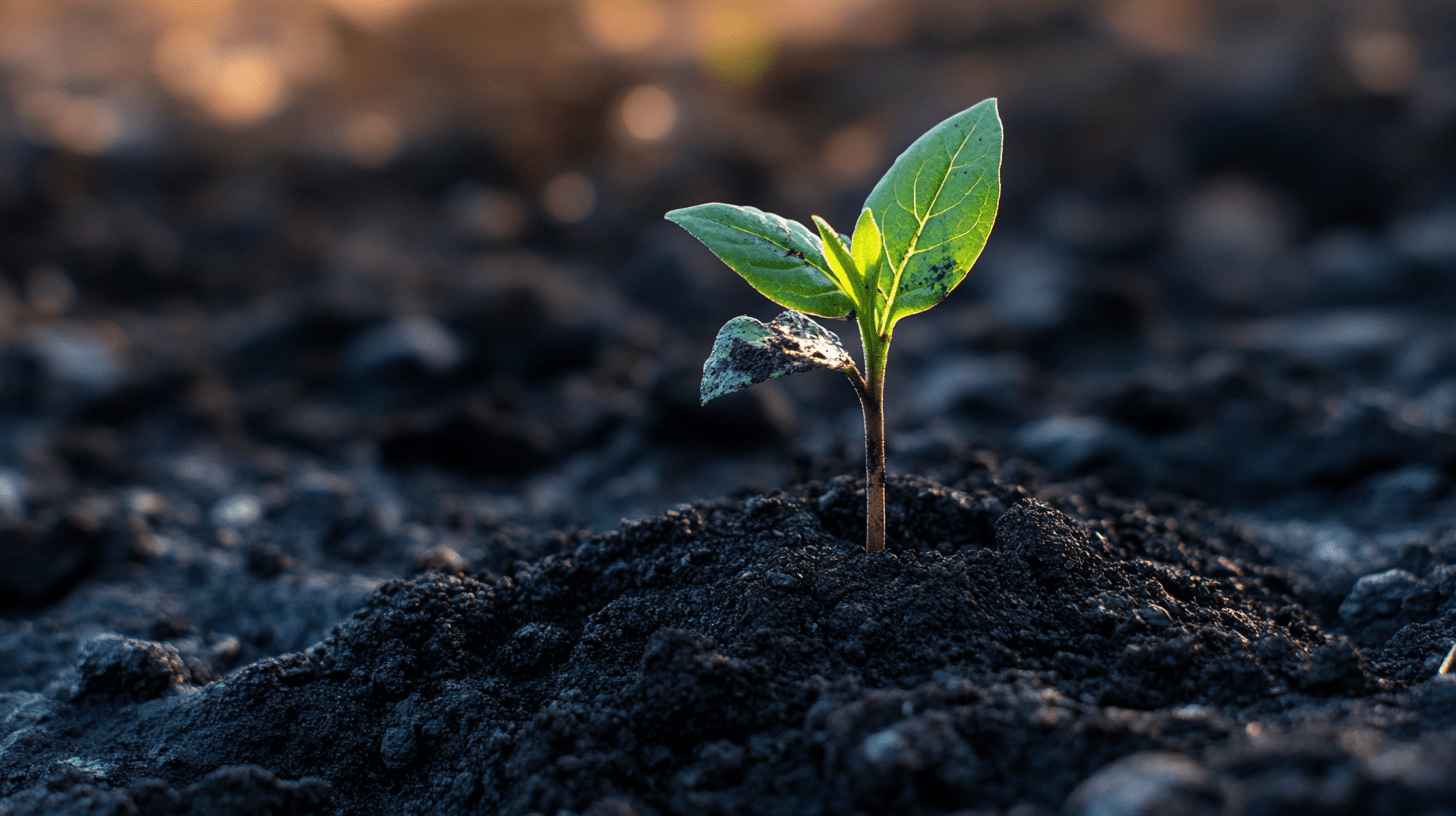Carbon Dioxide Removal
Discover the different techniques to capture and store CO₂, helping restore balance to our planet and mitigate the damage caused over the past decades. Find out how you can offset your own carbon footprint.

Biochar Explained: The Eco-Friendly Way to Trap Carbon in Soil
Ever heard of turning plant waste into black gold? No, not oil. We’re talking about biochar, an ancient practice with a modern twist that's making waves in the world of carbon removal and soil enhancement. Imagine something that can help fight climate change, improve soil health, and boost crop yields—all at the same time. Intrigued? Let’s dive into the fascinating world of biochar and see how this black magic works.
What is Biochar?
So, what exactly is biochar? Simply put, biochar is a type of charcoal made from plant and animal waste. It’s produced through a process called pyrolysis, which is just a fancy word for heating organic material in a low-oxygen environment. This process transforms the biomass into a stable form of carbon that can be buried in the soil.
Biochar isn’t a new kid on the block. Indigenous people in the Amazon have been using it for thousands of years to enhance their soil, creating what’s known as “terra preta” or “black earth.” These rich, fertile soils are still around today, proving that biochar has some serious staying power.
Chemically speaking, biochar is rich in carbon and has a porous structure. This porosity makes it great for holding onto nutrients and water, which is why it’s such a fantastic soil amendment. Plus, once it’s buried in the soil, it can lock away carbon on a geological time scale, keeping it out of the atmosphere where it would otherwise contribute to global warming.
Benefits of Biochar
Alright, let’s talk benefits. Biochar isn’t just cool science; it has some seriously impressive perks.
Carbon Sequestration
First and foremost, biochar is a carbon sequestration (a fancy word for storing) superstar. By turning biomass into a stable form of carbon and burying it in the soil, we’re effectively locking away CO₂ that would otherwise be released into the atmosphere. Estimates suggest that biochar could potentially sequester between 0.5 to 2 gigatons of CO₂ annually by 2050. That’s like taking millions of cars off the road!
Soil Health Improvement
But wait, there’s more! Biochar does wonders for soil health:
- Nutrient Retention: Its porous structure helps retain nutrients that plants need to grow.
- Water Holding Capacity: It can hold onto water, reducing the need for frequent irrigation.
- Microbial Activity: Biochar provides a habitat for beneficial soil microbes, which play a crucial role in soil fertility.
Agricultural Productivity
Better soil health means better crops. Farmers who use biochar often see increased crop yields and healthier plants. This can translate to significant economic benefits, especially for those in areas with poor soil quality. Plus, improved soil health means less need for chemical fertilizers, which is a win for both the wallet and the environment.
Challenges and Considerations
Of course, nothing is perfect. Let’s talk about some of the challenges and considerations when it comes to biochar.
- Production Costs: Creating biochar isn’t free. Production costs of biochar is also mainly due to the price of the feedstock. Especially in the Global North, this makes biochar production quite expensive. However, as technology improves and more efficient methods are developed, these costs are expected to come down and the created energy holds a lot of value as well.
- Scalability: Scaling up biochar production to meet global needs is a big challenge. It requires a lot of biomass and infrastructure for production and distribution. Additionally, ensuring a consistent supply of sustainable biomass is crucial to avoid deforestation and other environmental impacts.
- Environmental Impacts: While biochar has many benefits, it’s important to use it responsibly. Changes in soil pH and nutrient levels can occur, and these need to be managed carefully. Moreover, the biomass used for biochar must be sourced sustainably to prevent negative environmental impacts.
The Carboneers - using Biochar to support local farmers
In the battle against climate change, the Carboneers, a Dutch-based collective of innovators and environmentalists, are at the forefront of developing groundbreaking carbon removal solutions. Their mission goes beyond reducing emissions—they aim to actively remove excess CO₂ from the atmosphere.
.jpg)
One of their flagship projects involves optimizing biochar production. Biochar, a form of charcoal made from organic waste, is used to lock away carbon in the soil for centuries. The Carboneers are refining this process to maximize its carbon sequestration potential and make it accessible to farmers. Carboneers saw that the true impact to make biochar from plant organic material, was in the Global South, where biomass is often left out to decompose or is just burned in the open field to get rid of.

Carboneers, in collaboration with smallholder farmers, sets up projects in India and Africa, in which farming communities are trained, provided with the right tools, and technology to convert their agricultural biomass waste to biochar. Carboneers tracks every step of the biochar production process with a mobile application and has the projects and production data audited by an independent third party auditor.

Constantly looking for best practices in production technology, monitoring devices and reporting methods, Carboneers has, collaboratively with over 3500 farming communities, sequestered over 45000 tons of carbon dioxide, which equals the electricity emissions of thirty thousand households for 1 year!
Click here to learn more about the Carboneers